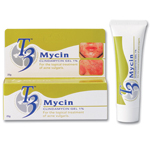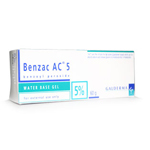 Acne Scar Removal
Acne Scar RemovalPeople who have been left with acne scars can find hope in procedures recommended by dermatologists. There are several methods of removal or smoothing of the scars depending on age, health condition and severity.
Acne Scarring - Cause and TreatmentUsually, the mild form of acne occurring in most people does not leave scars, or if it does, the scars heal naturally over time. But people suffering from severe forms of acne such as Nodulocystic acne might be left with deep scars in the skin. Find out more about effects of acne and treatments here.
Acne StatisticsAcne is one of the most common skin diseases in the United States. It is not contagious, but rather develops most prevalently during the teenage years and the early 20s. Acne is caused by an excess production of oil in the sebaceous glands. Find out some statistics on acne here.
Acne Treatment with Vitamin B-5Find out the multitude of positive effects of treating Acne with vitamin b-5.
Adult AcneNormally 95% of the people affected by acne are infected with acne in their teenage years. The other 5% develop acne during middle age (30-40is and beyond) n mainly due to hormonal changes.
Are there different kinds of Acne that different age groups get?Acne not only occurs in teens, as the number of adults suffering from acne has been increasing in the last decade. In 1999, Goulden and Cunliffe published their study of rising cases of acne in adulthood (Prevalence of facial Acne in Adults); they noted that the mean age of patients treated for Acne had increased in a decade from 20.5 years to 26.5 years.
At What Age Do People Generally Stop Getting Acne?There is a misconception among people that teenagers are the only ones who experience acne breakouts. They think that once the teenage years are passed acne would not appear. They are wrong, because acne sometimes appears in older ages as well. Find out more information here.
Coping with AcneThe bad news for people with acne is that no medication has been found that can prevent acne. Three out of four teenagers have acne, so you are not alone. Most teenagers want to know about the cure for acne or making oneself presentable by using makeup over acne.
Cosmetics and AcneCosmetics, because of their chemical compounds, are directly related to acne. In fact, acne cosmetica, or acne caused by cosmetics, is a common mild form of acne. This type of acne is triggered by topical factors and not the complex processes that take place inside the body. Even those people who are not susceptible to acne sometimes suffer from acne cosmetica. Find more information here.
Cyst Removal and PreventionAcne is a disease, which affects three out of four people. It is impossible to stop the outbreaks of acne. The disease also causes emotional trauma to a lot of people. Proper precautions must be taken to prevent scarring of the skin. Treatment for acne is available, but it varies among individuals as every individual has a different skin type. Treatment also depends on the severity of acne outbreaks.
Detoxification for AcneDetoxification, or cleansing of body of accumulated toxins, is a treatment mostly used in alternative medicine. The principle behind detoxification therapy is that the accumulated toxins in body give rise to various diseases and eliminating these toxins and avoiding further toxicity is essential for healing the body. Get more information here.
Does Diet Play a Role in Acne?It has been a subject of great debate if diet plays a role in acne. Now itis becoming clear that diet or food items may not directly cause acne, but the chemicals released during the metabolism of certain food items directly influence factors causing acne, and thus worsen the condition of pre-existing acne or trigger off on set of acne. Find out more about the effects here.
Does Stress Cause Acne?There has been a long debate about stress-related acne in health circles. Until a couple of years ago, the medical field was divided on the issue of whether stress causes acne, but recently there has been many clinical studies which show that stress can worsen acne.
Dry Skin and AcneThere are basically three types of skin: oily, dry and normal. All types of skin are susceptible to acne and the degree of severity depends on various conditions. A large percentage of people have all three types on their face and other parts of their bodies requiring different care for each type.
Everyday Tips for Acne PreventionAcne can be tremendously embarrassing for the acne sufferer. It is advisable to maintain the right kind of diet, nutritional balance and proper skin care. Here are some tips that will help you heal your acne.
Good Digestive System and AcneMany skin problems are caused by a sluggish digestive system. Acne, boils, eczema, psoriasis and body odor all owe their origin to the malfunctioning of digestive system.
Hormones and AcnePeople suffering from acne often have oily skin. This is mainly because of high level of androgen and testosterone hormones. Hormonal imbalances could lead to acne. Androgen and estrogen balance is required to maintain healthy skin.
How Can Lasers Benefit Acne?Dermatologists are using lasers for just about everything, including removal of birthmarks, smoothing out wrinkles, removing unwanted hair and assisting with acne. Find out more about that here.
How Does Acne Develop?Acne is a skin disorder which is caused by plugged pores on the skin. Acne lesions arise through pilosebaceous units, which are made of sebaceous glands and hair follicles in the middle layer of skin called the dermis. Pilosebaceous units are found all over the body except in the palms of hands and the bottoms of feet. Thatis why we do not have body hair or oil glands in these places, and thus no acne. More information can be found by clicking this link.
How is Acne Treated? (Homeopathic and Drugs)There are numerous ways to treat acne. While acne cannot be prevented nor cured, there are treatments to help lessen the severity of the acne as well as to avoid scars and infection. Find some information on common treatments here.
How Should People with Acne Care for Their Skin?There is no cure for acne, although there are numerous treatments for helping to prevent serious outbreaks. Treating your acne and blackheads can also help improve your appearance and self esteem as well as prevent the development of lifelong-pitted scars.
Keeping Acne to A Minimum in the ShowerMany misconceptions about skin care and acne seem logical, but are in fact farther away from the truth. Take for instance the stance that you should scrub your face well to wash away acne, though it seems logical it is a farfetched solution and in fact can aggravate the problem. Some people are inclined to use harsh soap to keep the body and free from infection without realizing that it cannot prevent an outbreak of acne.
Know Your SkinSkin is a sensitive organ and its proper upkeep is necessary to keep it healthy and protect it from infection. Skin is also affected by inner chemical changes, which are caused because of malfunctioning of different metabolic processes in the body. Simple acne appears on skin due to complex processes of extra male hormone formation by adrenal glands.
Let's Talk about Back AcneTo improve the condition of back acne, it is vital to understand what the root cause of this skin disease is, and also some information about what does not cause back acne.
Natural Treatment of AcneAcne in severe forms need medical attention, but in its mild form and at the beginning, acne can be treated effectively by natural herbs and following natures way in our daily routine. These herbs, which help even in removing blemishes, are not from any exotic plants or some rare species. These are very common natural products and oils found in our day to day life.
Oily Skin and AcnePeople with oily skin are more prone to acne than any other type of skin. Oil glands are more commonly known as sebaceous glands. Find more information about this by clicking the link.
Teenage AcneThree out of four teens become infected with acne and some of them may end up with severe psychological damage or physical scarring for life. Teens may lose their self-confidence and self esteem due to the onslaught of acne. Many of them feel embarrassed by the outbreak and tend to provide false reasons for not attending social gatherings and events.
 For some, acne can be a bit of hassle but for others it can be devastating.
For some, acne can be a bit of hassle but for others it can be devastating.






